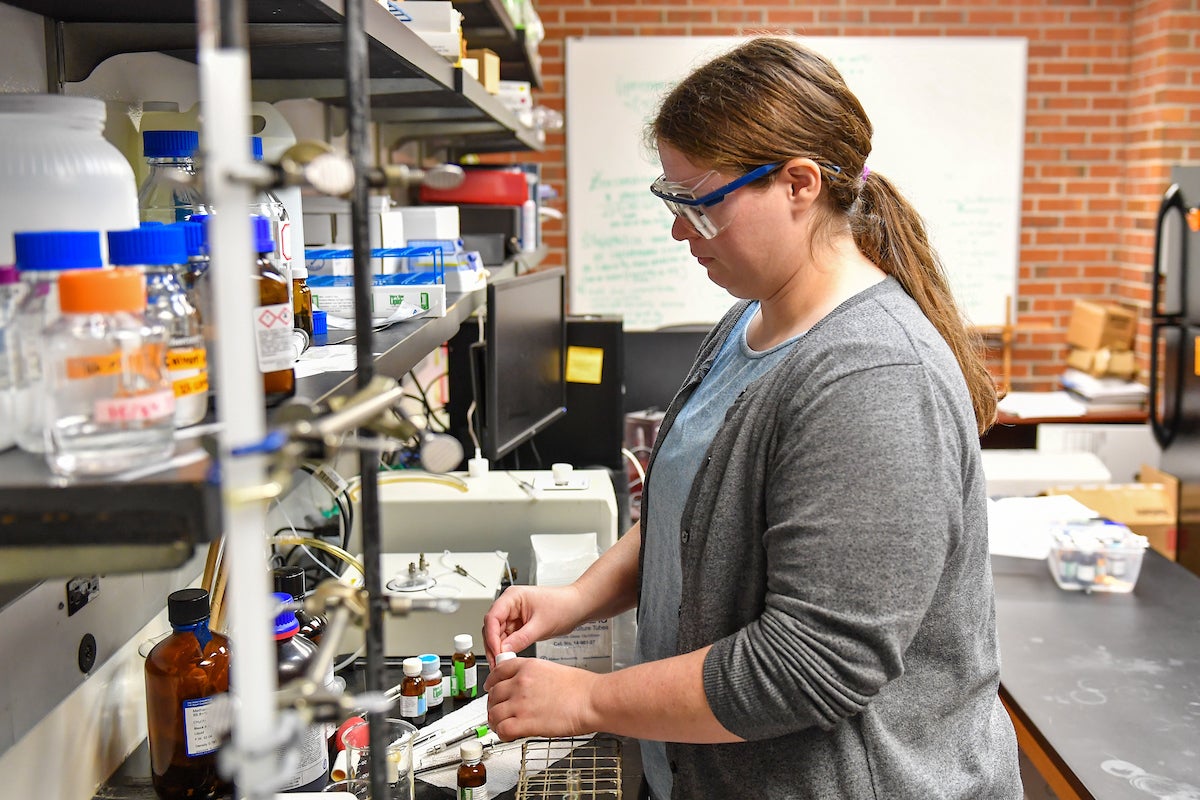Troy lecturer researching COVID-19 treatments
Published 8:56 pm Friday, April 24, 2020

- Dr. Suzanne Lukjan, a lecturer in the Chemistry and Physics department at Troy University, is researching ways to combat the effects of COVID-19 on patients’ lungs with ONY Biotech.
|
Getting your Trinity Audio player ready...
|
A Troy University lecturer is working with a major biotechnology company to research ways to combat the effects of COVID-19 on patients’ lungs.
Dr. Suzanne Lukjan, a Lecturer in the Chemistry and Physics Department, is working with ONY Biotech, the manufacturer of Infasurf® (calfactant) and a leader in the creation of non-invasive neonatal therapies for the treatment of Respiratory Distress Syndrome (RDS), in researching a therapeutic treatment that could help patients before their lungs succumb to the coronavirus.
The pulmonary surfactant therapy is geared toward patients suffering from COVID-19-related acute respiratory distress syndrome (ARDS), a type of respiratory failure.
Surfactant contributes to the lungs’ elasticity, preventing their collapse.
“This is not a cure, but it’s a therapeutic that could potentially buy some time so the patient’s lungs don’t give out before they are able to recover,” Lukjan said.
Lukjan has been working on surfactant research for some time, but the COVID-19 pandemic has focused her and ONY Biotech’s efforts toward the coronavirus’ unique attributes.
“The virus can damage your lungs,” she said. “Any time your lungs are damaged, the cells that produce surfactant can also be damaged and cause surfactant production to stop. You can’t breathe without surfactant lining the inside of the alveoli in the lungs. Your lungs will collapse.”
Lukjan and ONY are currently working on writing a grant, and she hopes the process will be fast-tracked due to the coronavirus’ continued spread.
“The virus isn’t going away anytime soon, and it takes a while to make a vaccine,” she said. “This would be something in addition to, not taking place of a vaccine. If we could fast track this and go through clinical trials quickly, that would be great. Sooner would be better.”
Lukjan said the partnership and continued research is just one example of the work being done by scientists at TROY and throughout the world.
“I want everyone to realize that science is important and can help save lives,” she said. “All of the science departments at Troy University are doing great things. The Chemistry and Physics Department, the Biology Department and the rest are all doing big things right now.”



